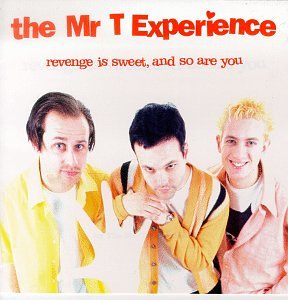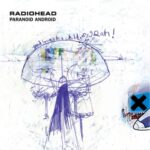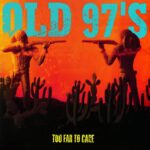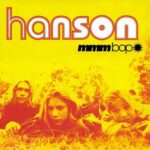 By Jae-Ha Kim
By Jae-Ha Kim
Chicago Sun-Times
August 30, 1996
I pity the fool who doesn’t like the Mr. T Experience.
Playing a potent blend of poppy punk tunes, the 10-year-old San Francisco trio sings songs that are sweetly melodic and, at times, hysterically true-to-life (“I’m like, `Yeah’/But she’s all, `No’/And I’m all, `Come on baby, let’s go’/And she’s like, `I don’t think so’).
And unlike the Sex Pistols and Green Day, who deny they are punks, the Mr. T Experience embraces the title.
“I understand wanting to distance yourself from the (punk) cartoon image, but being in sort of an obscure, loser band like mine, I don’t really have to worry about being tarred by the same brush as Rancid,” said Dr. Frank, singer-guitarist-songwriter for the group. “We aren’t in the mainstream of punk rock any more than we are in regular rock music. I guess we do our own oddball, quirky thing, but I think of it as punk rock.”
Touring to support their latest album, “Love Is Dead,” Dr. Frank, drummer Jym and bassist Joel Reader return to Chicago for a performance tonight at the Fireside Bowl.
“Punk rock for me now is the same as it was when I was a kid,” said Dr. Frank, 31, phoning from his Bay Area apartment. “It’s a reaction to mainstream rock and an attempt to distill the best out of rock ‘n’ roll, which is immediacy, simplicity and good compositions. There have been long periods when the biggest rock bands just didn’t have (good) songs, and lots of popular punk bands these days don’t either.”
Dr. Frank got the punk jones in 1978 after seeing the Sex Pistols in San Francisco. As a 13-year-old, he said, he paid more attention to the freak-show element of the concert than the music, such as the vendors who hawked cream pies sprinkled with shattered glass.
“I’ve often kicked myself for not paying more attention to what the music was like,” he said. “Everyone seemed so old to me and they were probably college age. The line was that the Sex Pistols didn’t know how to play their instruments, but the truth is they were a pretty great rock band. If they were dressed a different way, they probably would’ve been accepted.”
Mainstream acceptance is something Dr. Frank said he doesn’t expect with his band. Not because they’re not as good as, say, their pals in Green Day (who used to open for the Mr. T. Experience), but because most groups will never see the top of the charts.
“We did a couple of tours in the ’80s,” he recalled. “Talk about a pointless endeavor. We played to a couple of drunks who weren’t interested. They knew it would be a punk show, but we weren’t what they were expecting. But that’s cool, because especially back then when I couldn’t write, couldn’t play and couldn’t sing, there was this absurdity of subjecting people to this crazy thing you were doing.”
The T’s did have at least one major fan: Reader, who had been into the band since he was 11. When the group’s bassist quit, Reader, now 19, joined the Mr. T Experience.
And about that band name?
“Well, it’s kind of like the Jimi Hendrix Experience,” Dr. Frank said jokingly. “I didn’t even know what we were thinking. Frankly, we were just idiots and (“The A-Team”) was on TV at the time and everyone was drunk enough to think it was a good idea. But on the plus side, we never have to worry about any other band trying to use the name. At this point, the absurdity of it is kind of charming in a way.”
In any case, the band name was never an issue because none of the musicians thought the group would last longer than a few shows.
“I had planned for quite some time to have an academic career,” said Dr. Frank, who graduated from the University of California at Berkeley with a degree in history of the Middle Ages and late antiquity. “I was going to get a doctorate and teach, and up until about the last three years, I was still thinking I’d eventually do that, at least for my own edification.”
He wryly added, “Then I decided to become a professional deadbeat. The audience for my dumb little record is small, but it’s probably larger than the audience that would’ve bought a book on Platonic dialogues.”





